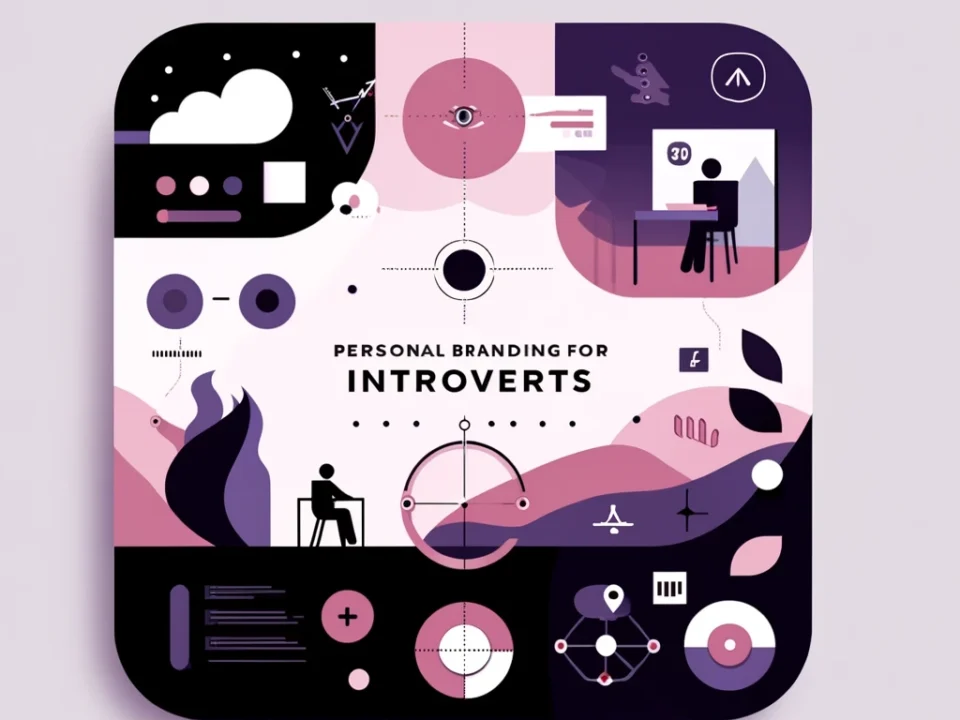The significance of personal branding in today’s business landscape, particularly within the eCommerce sector, cannot be overstated. While larger corporations often rely on corporate branding, smaller entities frequently leverage personal branding, emphasizing a specific individual as the face of the business. This approach is evident in sole proprietorships or companies with a single shareholder, as well as in more sizable enterprises that choose to spotlight a particular owner or manager.
A distinct category emerges where businesses exclusively depend on a celebrity influencer to represent the company. A notable example is the George Foreman Grill, produced by Spectrum Brands. Despite the corporate entity behind it, the product relies solely on the personal branding of celebrity influencer George Foreman for marketing.
In this context, we’ll explore five noteworthy personal branding examples. These individuals recognize the intrinsic value of their name, prioritizing its prominence in marketing efforts over the business name. This strategic emphasis on personal branding becomes a powerful tool in establishing trust and connection with consumers, particularly in an era where familiarity and authenticity play a pivotal role in consumer decision-making.
Noah Kagan
Noah Kagan, a prominent figure in the entrepreneurial and business space, has made a lasting impact by championing the cause of aspiring business owners. With a career spanning over a decade, Kagan has dedicated himself to assisting individuals in discovering, planning, and swiftly launching successful businesses. In an arena where many struggle to formulate viable ideas and execute solid plans, Kagan stands out as a beacon of guidance and practical wisdom.
A key element of Kagan’s personal brand is centered around actionable advice. His approach involves simplifying the seemingly complex and murky landscape of commerce. His extensive experience, having been the 30th employee at Facebook, the 4th at Mint, and contributing to Intel, positions him as a seasoned veteran who has navigated various facets of the business world.
Kagan’s influence extends beyond his website, where he actively shares valuable insights. He hosts “Noah Kagan Presents,” a podcast that features conversations with some of the world’s most interesting people. These interviews span a diverse range of guests, including entrepreneurs, athletes, and celebrities, providing listeners with a rich tapestry of experiences and perspectives.
Furthermore, Kagan leverages the power of video content on platforms like YouTube to disseminate practical business advice. Through his videos, he peels back the layers of misinformation and self-doubt that often hinder entrepreneurs and business people. By addressing common challenges and offering actionable strategies, Kagan empowers his audience to thrive in the dynamic world of business.
In essence, Noah Kagan has established a personal brand that goes beyond mere entrepreneurship; it embodies a commitment to fostering a community of informed and empowered individuals. His blend of experience, relatable insights, and a multimedia approach makes him a trusted source for those navigating the challenges of starting and growing successful businesses.
Gary Vaynerchuk
Gary Vaynerchuk stands as one of the most influential entrepreneurs in contemporary America, renowned for his prolific career and business success. Born to Belarusian immigrants and raised in Queens, New York, Vaynerchuk’s journey is marked by a strong entrepreneurial spirit, rapid execution, and a remarkable rise to prominence. Notably, he openly shares a pivotal aspect of his story: his humble beginnings, emphasizing that he was nowhere until his mid-thirties.
During his early years, Vaynerchuk worked in his father’s liquor store, a period in which he transformed the business from a $3 million to a $60 million company. In the 90s, he pioneered online wine reviews by launching Wine Library, a show where he reviewed wine daily for five years. This venture showcased his foresight into the potential of digital platforms for business and content creation.
Beyond his entrepreneurial endeavors, Vaynerchuk has become a spokesperson for aspiring entrepreneurs and individuals seeking more fulfillment in life. His message encourages people to break free from societal expectations and discover their passions, emphasizing how to turn those passions into lucrative opportunities.
A five-time best-selling author, Vaynerchuk serves as the chairman of VaynerX, a modern media and communications holding company. He is also the active CEO of VaynerMedia, a full-service advertising firm. Vaynerchuk’s personal brand radiates across various social media platforms, where he consistently shares insights, advice, and motivational content. His podcast, “The GaryVee Audio Experience,” adds another dimension to his multimedia presence, providing a platform for in-depth discussions on entrepreneurship, business strategies, and personal development.
Gary Vaynerchuk’s impact transcends industries, and his brand serves as a beacon for those seeking entrepreneurial success and a more fulfilling life. His diverse range of achievements, combined with an unfiltered and authentic approach, has solidified his position as a thought leader, mentor, and advocate for pursuing passion and happiness in both professional and personal spheres.
Brian Dean
Brian Dean, the founder of Backlinko, stands out as a prime example of a personal brand built on the foundation of specificity and expertise. As an SEO expert, he has strategically focused on a niche—teaching people how to increase website traffic from search engines. This singular focus has yielded numerous benefits, showcasing the power of associating one’s name with a specific area of expertise.
The significance of this specificity is multi-fold. Firstly, it builds credibility and authority in the chosen niche, positioning the individual as an expert within the industry. Secondly, it attracts a more targeted audience, increasing the likelihood of converting visitors into customers. Lastly, it simplifies content creation by providing a clear direction for the content calendar.
Brian Dean’s commitment to focusing solely on SEO for 5-6 years allowed him to establish himself as a recognized authority in the SEO industry. His blog, Backlinko, became synonymous with valuable insights and practical strategies for optimizing search engine rankings. This expertise translated into top rankings on Google for various SEO-related searches, further solidifying his position in the field.
The success didn’t stop there. Brian strategically expanded his reach in 2018 by delving into an adjacent niche: teaching YouTube SEO. This move wasn’t a deviation from the rule of specificity; instead, it was a well-thought-out strategic decision. The expansion into YouTube SEO was closely related to his original focus on SEO, allowing him to become the go-to expert in this emerging and relevant field.
Brian Dean’s story provides a blueprint for building a successful personal brand—start with a specific, focused niche, establish expertise, and strategically expand into closely related areas. This approach ensures brand coherence and growth without diluting the hard-earned recognition and authority in the original domain.
Pat Flynn
Pat Flynn, the founder of Smart Passive Income, embodies a crucial element of successful personal branding—transparency and trustworthiness. Interacting with his brand creates an immediate sense of trust, a rare quality in the online space.
One notable feature on the Smart Passive Income blog exemplifies this commitment to transparency. A peculiar squiggly line in the top right corner of the homepage leads visitors to in-depth reports detailing Pat Flynn’s income—revealing not only how much he earned but also how he earned it. This level of openness is not common, especially in an era where many individuals prefer to showcase only their successes.
What sets Pat apart is his willingness to share failures and setbacks. Unlike those who might be tempted to present an idealized version of success, Pat chooses authenticity. He openly discusses losses and failures, providing insights into what went wrong and why. This practice, while unconventional, contributes significantly to building trust with his audience.
The decision to showcase both successes and failures might seem counterintuitive. One might question whether revealing failures decreases credibility. However, Pat Flynn understands that true credibility and trust come from authenticity. By avoiding the temptation to present a perfect image, he establishes a connection with his audience that goes beyond the surface.
The transparency in Pat’s approach serves as a valuable lesson for personal branding. It underscores the importance of striking a balance between showcasing tangible successes that build credibility and openly discussing failures to help the audience navigate challenges. This middle ground allows for the development of expertise while humanizing the personal brand, fostering a genuine connection with the audience.
In essence, Pat Flynn’s personal brand thrives on the principles of transparency and authenticity, proving that building trust is often more impactful than presenting an idealized version of success.
Chip and Joanna Gaines
Chip and Joanna Gaines, the stars of HGTV’s Fixer Upper and founders of Magnolia Homes, have built a remarkable personal brand centered around the values of faith, family, and community. Their consistency in conveying this message across various platforms has played a pivotal role in establishing a strong and loyal fan base.
One crucial aspect of their success is the unwavering commitment to a clear and consistent message. In an era where authenticity is highly valued, Chip and Joanna’s adherence to their core values sets them apart. Regardless of the platform—whether it’s Fixer Upper, Magnolia Homes, or interviews—their message remains the same. This level of authenticity resonates with audiences, fostering a sense of trust and connection.
The importance of a consistent personal brand cannot be overstated. If Chip and Joanna were to present themselves differently in different contexts, it could erode the trust they’ve built with their followers. This underscores the fundamental principle of authenticity in personal branding.
To develop a similar level of consistency in your own personal brand, it’s essential to follow a structured approach. Firstly, identify your target audience and gain a deep understanding of what matters to them. Next, craft a message that aligns with both your values and the interests of your audience. The key is to be passionate about this message, as genuine enthusiasm is contagious.
Furthermore, delivering this message requires attention to the tone and voice that resonates best with your audience. Chip and Joanna’s success lies not just in their message but in how effectively they communicate it. Take the time to fine-tune your delivery to ensure it aligns seamlessly with your brand and appeals to your audience.
In summary, the success of Chip and Joanna Gaines’ personal brand is rooted in a clear, consistent, and authentic message. By following a deliberate process to understand their audience, craft a passionate message, and deliver it effectively, they have created a foundation for building a devoted fan base. This serves as a valuable lesson for anyone aspiring to establish a compelling personal brand.
Conclusion
In conclusion, the case studies of Noah Kagan, Gary Vaynerchuk, Brian Dean, and Pat Flynn, along with the example of Chip and Joanna Gaines, highlight the power of personal branding in today’s business landscape. These individuals have strategically leveraged their personal brands to not only promote their businesses but also to establish themselves as trusted authorities and influential figures in their respective industries.
Noah Kagan’s focus on actionable advice and his commitment to empowering aspiring business owners showcase the impact of a personal brand that goes beyond entrepreneurship. Gary Vaynerchuk’s journey from humble beginnings to a multifaceted entrepreneur emphasizes the importance of authenticity and using personal experiences to inspire others.
Brian Dean’s success in the SEO industry, built on specificity and strategic expansion, provides a blueprint for establishing expertise and growing a personal brand. Pat Flynn’s transparency and openness about both successes and failures underscore the significance of building trust and genuine connections with an audience.
Chip and Joanna Gaines serve as a compelling example of the value of consistency and authenticity in personal branding. Their unwavering commitment to faith, family, and community across various platforms has fostered a strong and loyal following.
Personal branding is important for people to stand out, connect with their audience, and gain trust in today’s fast-paced and connected world. These case studies demonstrate that a well-crafted personal brand, rooted in authenticity, consistency, and a clear message, can elevate an individual’s influence and impact in their industry. Aspiring entrepreneurs and professionals can draw inspiration from these success stories to cultivate their own authentic personal brand, ultimately contributing to their professional growth and success.





